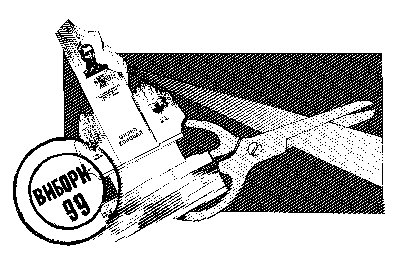History of One Monument

Kutkivtsi gave the world Filip Konoval, the only Ukrainian ever awarded a Victoria Cross, the United Kingdom's highest decoration. He shook hands with British Kings George V and George VI. Trilingual commemorative plaques were unveiled in his honor: at the Ottawa's Courtier Riding School (Ottawa), at the 260th division of Royal Canadian Legion, and in Westminster (British Columbia).
This hero was born September 15, 1888, at Kutkivtsi. Ukrainian Canadians have carefully studied his life story and gathered material for the book Konoval. It is written that Filip worked in the Kutkivtsi quarry, then was recruited into the Russian Tsarist army, where he soon became an instructor in hand-to-hand combat.
After some time, Filip emigrated to Canada. He never left any explanations of his motives, for the land of the maple leaf attracted many at that time. But the rumbles of World War I reached even there: far-away Canada joined the British Commonwealth forces against the Kaiser's Germany.
Chairman of Kutkivtsi village council Oleksandr Kordon, referring to historical sources furnished to him by the Diaspora, says, "Corporal Konoval was sent to France with an artillery battalion. It is there, near the city of Lens, that our dear fellow countryman won his Victoria Cross."
Mr. Kordon and I are standing on the place where a monument should be. After a pause, my interlocutor tells me in carefully chosen words about the hero's exploit. "The day of August 21, 1917, began outside Lens with shelling in the rain. Of course, from the enemy side. The battalion where Konoval served had already lost all its commanders. But the enemy continued shelling, making everybody lie low in the trenches. People were dying... And what does our fellow countryman decide?"
The village chief looks at his interlocutor somewhat victoriously, as if he were a witness or a participant in those distant events. Then he continues: "Corporal Konoval ordered his soldiers to cover him with machine-gun fire, and then fearlessly leaves his shelter and crawls to the enemy machine-gun emplacement. He reaches the machine-gun crew and plunges, in a flash, into the trench with three of the Kaiser's soldiers..." And how on earth could that crew know that they were facing a hand-to-hand combat instructor? They fell down like dominoes after his punches. Another six soldiers attacked Konoval with bayonets drawn, but they met the same fate. Then the last machine-gun emplacement, where Konoval finally routed the crews. He returned to his position carrying a machine-gun and three captives under his arms.
History has preserved the words of George V, the King of Great Britain, to Filip: "Your exploit is one of the dearest and most heroic in the history of my army. Accept my gratitude for this." And he handed a Victoria Cross to a Canadian citizen born in Kutkivtsi, a village forsaken by God and man.
"Do you think after that fate smiled at the earner of Great Britain's highest award?" asks Mr. Kordon. After the war Konoval served in the Canadian Parliament. As a floor-sweeper. Later, as the guard of special room No 16 at the office of the Canadian Prime Minister. Konoval died June 3, 1959.
Neither during Konoval's life nor after his death, did Kutkivtsi have the faintest idea of its hero of the United Kingdom. But no sooner had the borders opened than Filip's relatives were found in the village: his grandson and granddaughter, already elderly Volodymyr Baryliuk and Hanna Motsna. But even they had known nothing about their glorious granddad until recently. They only heard once that he had lived here and then gone away in search of a better destiny. That is all.
As to a monument to Filip Konoval in Kutkivtsi, the Association of Ukrainian- Canadian Veterans has long been funding this noble project. It seemed to have found full support of the then oblast and district administrations. The monument draft was made by sculptor P. Kulyk and architect P. Bliusiuk from Lviv. "They set the dates: the monument to our glorious compatriot was to have been solemnly unveiled by this fall. Canadian guests planned to come to Kutkivtsi but did not. Not because they could not or did not want to. Because there is no monument to this day," the village council head says in distress. He maintains ties with the Diaspora which insists that the monument be unveiled at least in August 1999.
As soon as spring came, Mr. Kordon handed in all his archives to the
new chairman of the Chemirivtsi district administration Mr. Tsyts, who
took them to Khmelnytsky. The oblast state administration informed one
and all that it was all the President's doing. And it quickly found its
bearings: last year's summer is not the hot summer of 1999. "They began
to ask questions and explain that the President would attend the opening
ceremony," the village council chief says. He laments, "The road to the
future monument is as rough as can be - the guests won't get through."
The road is also likely to be repaired by then. But will the Canadian Ukrainians,
who financed the erection of the monument, not guess the true motives and
intentions of other participants in the ceremony? You can see so many things
in the light of success and glory.
Newspaper output №:
№26, (1999)Section
Culture





